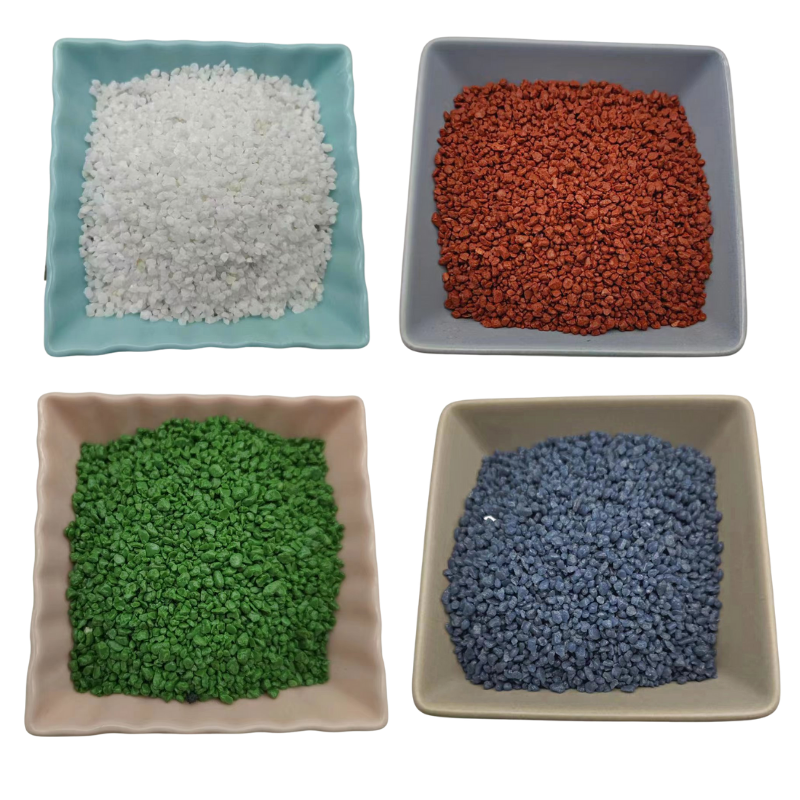
Leading OEM Manufacturer for Expanded Perlite Production and Innovative Solutions in the Industry
OEM Expansion Perlite Production A Comprehensive Overview
The demand for lightweight, versatile materials in various industries has led to the increased popularity of expanded perlite. As an essential component in construction, horticulture, and industrial applications, the production of expanded perlite has become a significant focus for manufacturers. This article delves into the OEM (Original Equipment Manufacturer) expansion perlite production process, highlighting its advantages, applications, and the key players in the industry.
What is Expanded Perlite?
Expanded perlite is a naturally occurring volcanic glass that, when heated to high temperatures, expands dramatically to create a lightweight, porous material. This transformation is primarily due to the water content trapped within the volcanic glass, which vaporizes during heating. The result is a white, granular product with excellent insulating, lightweight, and moisture-retaining properties.
The OEM Production Process
Manufacturers specializing in OEM expansion perlite production adhere to a specific set of processes that ensure quality and consistency. The production begins with the mining of raw perlite ore, which is then crushed and milled into a fine powder. This powder is subjected to high-heat treatment in a furnace, typically heated to temperatures ranging from 850 to 1,200 degrees Celsius. During this stage, the water content vaporizes and causes the perlite to expand up to 20 times its original volume.
Quality control is paramount in this process. OEM manufacturers often utilize state-of-the-art technology and equipment to monitor the expansion process, ensuring a uniform grain size and expansion ratio. After expansion, the product is cooled, classified, and packaged for distribution. This meticulous process ensures that the expanded perlite meets industry standards and customer specifications.
Advantages of OEM Services
One of the primary benefits of working with OEM manufacturers for expanded perlite is the ability to customize products according to specific needs. OEM vendors can produce various grades of perlite based on factors such as particle size, expansion ratio, and thermal conductivity. This flexibility allows businesses in different sectors to find tailored solutions that suit their particular applications.
oem expansion perlite production manufacturer

Furthermore, OEM partnerships can streamline the supply chain. By cooperating directly with manufacturers, companies can benefit from bulk pricing, reduced lead times, and reliable consistency in product quality. This partnership often results in enhanced competitiveness in the marketplace.
Applications of Expanded Perlite
Expanded perlite finds applications in numerous industries. In the construction sector, it is primarily used as lightweight aggregate in concrete, thermal insulation, and as an excellent sound barrier. Its moisture-retaining properties make it a favored choice in horticulture as well, particularly in potting mixes and as a soil amendment to improve aeration and drainage.
Other industrial applications include its use in filtration systems, as a filler in various products, and as a component in chemical processes. Its versatility ensures that expanded perlite remains in high demand across multiple markets.
Key Players in the Industry
Numerous manufacturers are leading the OEM expansion perlite production market. Companies like Imerys, Perlite-Harbor, and American Perlite are recognized for their high-quality products and extensive reach. These manufacturers often emphasize sustainable practices by employing eco-friendly mining and production methods, ensuring that their operations are not only profitable but also environmentally conscious.
Conclusion
OEM expansion perlite production represents a thriving segment within the materials industry. With its extensive applications and desirable properties, expanded perlite is set to meet the growing demands across various sectors. As manufacturers continue to innovate and expand their offerings, the future looks bright for this remarkable material, solidifying its place in modern construction, horticulture, and industrial processes. благодаря!
Share
-
Premium Pigment Supplier Custom Solutions & Bulk OrdersNewsMay.30,2025
-
Top China Slag Fly Ash Manufacturer OEM Factory SolutionsNewsMay.30,2025
-
Natural Lava Rock & Pumice for Landscaping Durable Volcanic SolutionsNewsMay.30,2025
-
Custom Micro Silica Fume Powder Manufacturers High-Purity SolutionsNewsMay.29,2025
-
Custom Mica Powder Pigment Manufacturers Vibrant Colors & Bulk OrdersNewsMay.29,2025
-
Custom Micro Silica Fume Powder Manufacturers Premium QualityNewsMay.29,2025






